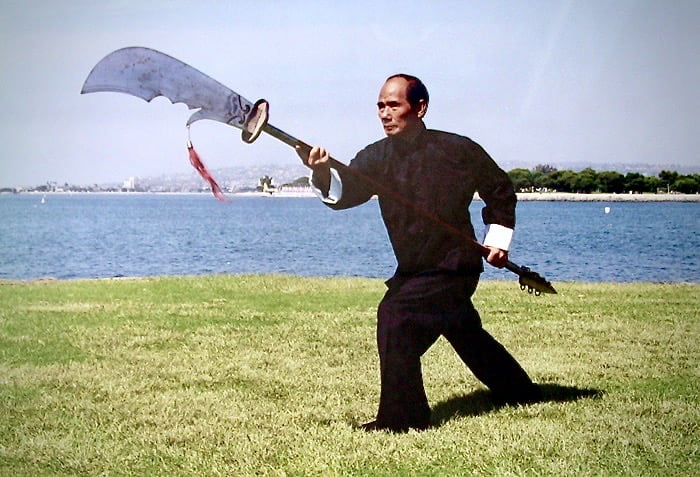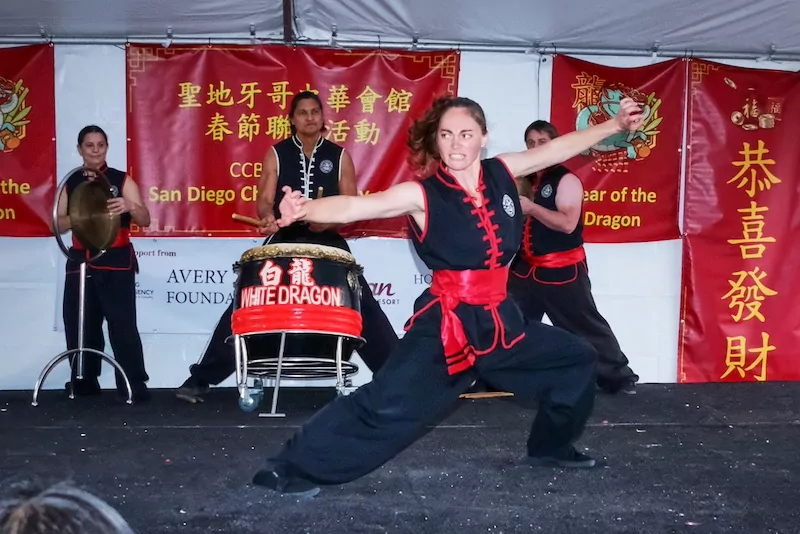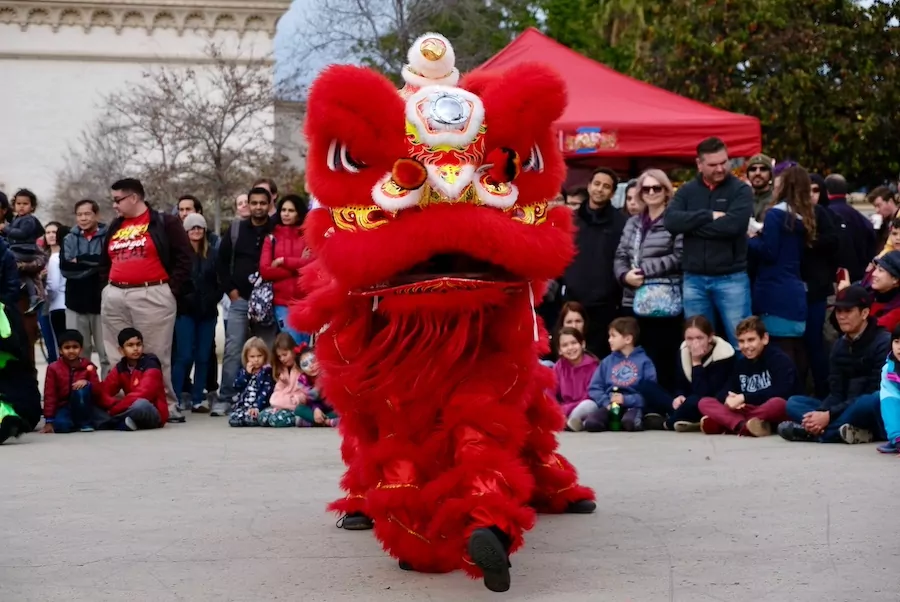The White Dragon School Blog

Expert or Master?
It’s time to clear up some misunderstanding about skill levels in traditional kung fu systems—specifically the difference between expert and master.
Japanese karate styles make this difference pretty obvious through belt rankings that award a master-level ranking and belt only after special requirements are met. Korean martial arts, such as Hapkido and Kuk Sool Won, do the same, reserving the title of master (kwa jang nim) for only those above the fifth-degree black belt who satisfy certain standards.
Unfortunately, Chinese martial arts lack such structure, relying on an honor system to decide who is truly a master of a particular system. This lack of recognized standards often leads people who should rightfully be called kung fu experts to call themselves masters of their systems.
I believe that learning and mastering a system are two different things. For example, while Wing Chun has fewer forms to learn than Choy Li Fut, it still takes approximately the same amount of time to actually master both systems.
Some people say you can learn the entire Wing Chun system in two or three years. That may be true for some individuals. Choy Li Fut has many more hand and weapon sets than Wing Chun. It takes longer to learn that many sets. However, memorizing the sets has nothing to do with mastering either kung fu system.
Even if you learn all of Wing Chun’s sets in two or three years, you must still know Wing Chun’s techniques and how to use each form before you can even think of calling yourself a master of Wing Chun. Although you have technically completed the Wing Chun system, until you understand and can use everything from those sets and fighting tactics, you cannot say you have mastered Wing Chun.
A different situation exists with Choy Li Fut where there are far more techniques and forms. Just to correctly complete all the sets required in an individual Choy Li Fut school might take 10-to-15 years. This doesn’t mean you must learn every Choy Li Fut form before you can call yourself a master of Choy Li Fut kung fu.
A good Choy Li Fut school will teach you fewer sets, placing more emphasis on basic foundation, fighting techniques, two-person drills and freestyle training, along with a thorough understanding of the forms you learn. In that environment, you should be able to use Choy Li Fut for self-defense as well as any other kung fu style within two-to-three years. However, while you will be an expert at certain forms and techniques you still cannot call yourself a kung fu master.
My point in comparing Wing Chun training with Choy Li Fut is that while some kung fu systems take longer than others, each requires at least 10-to-15 years of training to think about qualifying as a master.
Teaching kung fu and being a master are not always the same thing. You cannot practice Wing Chun for five years and call yourself a kung fu master. However, you can certainly be a Wing Chun instructor after five years. In Choy Li Fut, you can also become an instructor in three-to-five years.
As an instructor, you can probably call yourself an expert at your chosen martial art. Martial art experts can perform their sets well and look good. They can fight well and look good at it. But that’s still not enough to be a master.
Besides Choy Li Fut, there are many other styles with large numbers of different hand and weapon forms. Forms are information sources designed to fit certain individuals. You shouldn’t think you must learn every form to be an expert. If you want to be an instructor, you must also understand the style’s fighting techniques. While it is good to know enough sets to keep your students interested, understanding the techniques is more important than learning all the sets and claiming to have mastered the system.
Sometimes people confuse the ability to win tournaments with what it takes to master a system. Tournament experience does help you become an expert in your style. Becoming an expert involves understanding the basic principles of the kung fu system—all the punching and kicking techniques—and becoming good at them. Next, work only on a couple of hand forms. When you perform or compete in tournaments, make sure they look good. Third, do plenty of freestyle sparring. Train two ways in sparring, using the system’s techniques and adapting yourself to any kind of fighting rules for tournament competition. A good fighter can fight with any kind of rules.
Don’t try to learn too many fancy sets. Be able to do your techniques as if they were second nature.
Some kung fu instructors claim everyone else is no good. Do they mean his form is no good? He’s not a good fighter? Or not a good instructor? Most people say these things because they are jealous. However, no one has anything bad to say about tournament champion instructors, because they actually demonstrate their skill and ability.
I highly recommend people get into tournament competition from the beginning of their martial careers. Most people who can do a nice form like to be recognized. Most people who can fight well like to be recognized. Tournaments are the best place for that recognition. In the old days, we looked for New Year’s demonstrations to show our ability and be recognized. Some shy martial artists believe competition doesn’t mean anything. They think winning a trophy does not prove anything. Maybe that’s true in a small local tournament, but in a large tournament with good competitors, it means something if you can win or place. Some of the old-fashioned traditional kung fu schools don’t compete because people are afraid they will lose. Actually, when you win people notice you. When you lose, people don’t notice your mistakes. So, there’s not much to lose at tournaments, but plenty to be gained in experience.
There is one situation where not wanting to compete makes sense. Some people just do martial arts for health or self-defense, with no intention of teaching other people. Otherwise, to become an expert at any kung fu system, besides requirements of training in your school, doing well in tournaments helps you develop confidence and improve skills. Also, if you want to become a professional instructor, you have a track record for people to compare.
That describes an expert. Now for the master. To call yourself a master, I believe you should have at least ten years of experience in one system, understanding each form and technique you learn. You should also have a number of years of actual teaching experience, with all level students. Finally, and equally as important as everything else, you should be able to produce a student who has similar capabilities as your own.
There’s a big difference between a kung fu expert and a master. Neither should be taken lightly.
This article originally appeared in the January 1992 issue of Inside Kung Fu Magazine, “Training for Life” by Grandmaster Doc-Fai Wong.



















1 Comments
Very nice article!